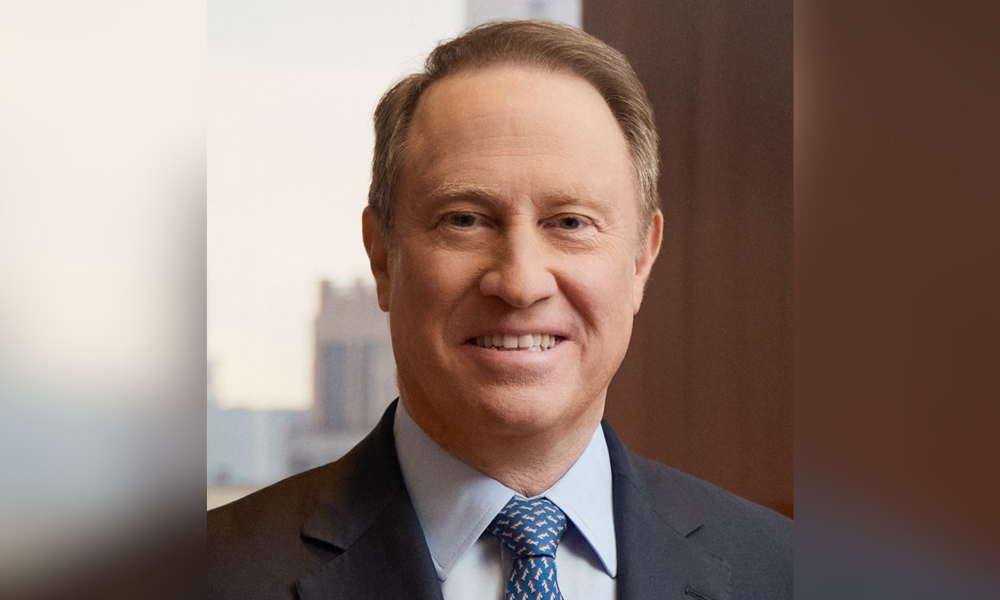

With the S&P 500 Stock Index increasing more than 20 percent for two consecutive years, 2025 begins with large wealth management operations hitting new highs in client assets but also revealing strategies to continue to drive revenue.
In the case of Morgan Stanley, the wirehouse wants its financial advisors to increase their banking relationships with clients and sell more loans, a practice known as cross-selling. For Merrill Lynch, the wealth management arm of Bank of America Corp. is also focused on bringing in new clients amid its recent success in growing loans and sales of alternative investments.
Morgan Stanley is clearly interested expanding loans to advisors’ clients.
“We're a bank,” said Ted Pick, Morgan Stanley’s CEO, Thursday morning during a conference call with analysts to discuss fourth quarter 2024 earnings. He was responding to an analyst’s question about the integration of the firm’s wealth management business and its bank. “We lend and we have to do that in the context of deepening relationships.”
“We lend to about 16 percent of our households and the best-in-class peers are higher,” Pick noted. “They're 50 percent higher, mid-20s. So, there is real opportunity.”
Meanwhile, Merrill Lynch reported Thursday morning record assets under management of $1.5 trillion in its fee and investment advisory program, an 18 percent increase year-over-year, according to the company.
At the same time, loans to clients and sales of alternative investment products, which often carry greater risk and fees than stock and bond index mutual funds or exchange-traded funds, are becoming more prevalent at Merrill Lynch.
The firm reported a $12 billion increase in loan balances in 2024, “driven by momentum in custom lending, [securities based lending] and custom mortgages,” according to the firm. The firm also reported more financial advisors using alternative investments last year, with an 11 percent increase in “advisor adoption” of alternatives compared to the end of 2023.
It's a truism in the financial advice industry that many financial advisors dislike selling banking products like checking accounts, mortgages, or credit cards. Financial advisors are not bankers. They want to work with clients’ assets and show their value to customers by generating returns on investments and executing a financial plan.
“Advisors don’t like having to sell banking products,” said Casey Knight, executive vice president of ESP Financial Search. “Investors often aren’t really interested. Since the Credit Crisis, which spawned a lot of banks taking over wirehouses, advisors have always disliked it.”
Meanwhile, the wirehouses are improving banking resources for advisors, even if they may not enjoy the work, said Alois Pirker, an industry consultant.
“The big banks have teams and AI in place to help the advisors now with the banking work,” Pirker said. “The efficiency is getting better but it’s still a mental block for some advisors.”

Canadian stocks are on a roll in 2025 as the country prepares to name a new Prime Minister.

Two C-level leaders reveal the new time-saving tools they've implemented and what advisors are doing with their newly freed-up hours.

The RIA led by Merrill Lynch veteran John Thiel is helping its advisors take part in the growing trend toward fee-based annuities.

Driven by robust transaction activity amid market turbulence and increased focus on billion-dollar plus targets, Echelon Partners expects another all-time high in 2025.

The looming threat of federal funding cuts to state and local governments has lawmakers weighing a levy that was phased out in 1981.
RIAs face rising regulatory pressure in 2025. Forward-looking firms are responding with embedded technology, not more paperwork.
As inheritances are set to reshape client portfolios and next-gen heirs demand digital-first experiences, firms are retooling their wealth tech stacks and succession models in real time.
